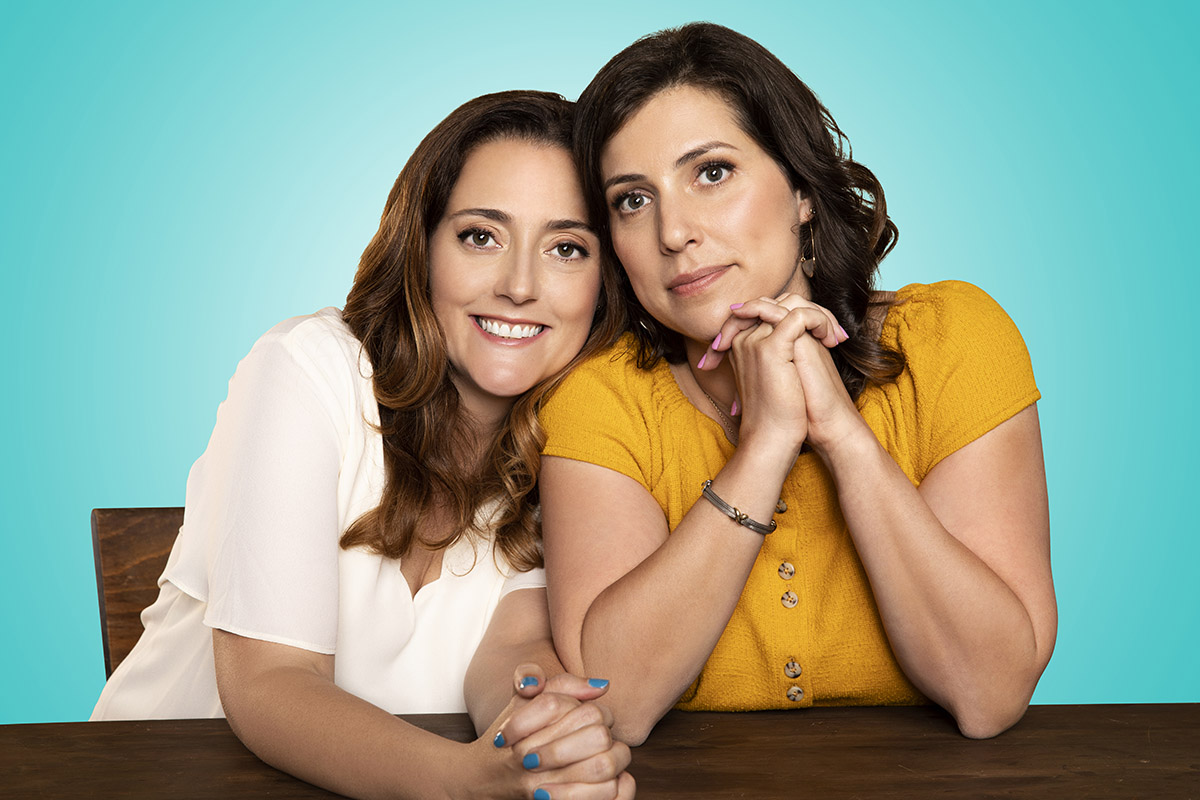How Storytelling Can Help Us Deal With the Hard Issues
Sharing your own stories — and listening to those of others — has many benefits.
Mar 23, 2023
Since the beginning of time, women have played an indispensable role in capturing and reflecting on the human experience, from the earliest storytellers to pioneering journalists, artists, and teachers who have shaped generations of minds.
Any woman who has something to say, and says it, can have a huge impact on how we look at the important things in life. And, so, we dedicated our “Light After Loss" Facebook Live episode to women storytellers and how they can strengthen our connection with one another.
Modern Loss' Rebecca Soffer hosted a discussion with Stephanie Wittels Wachs, cofounder and chief creative officer of Lemonada Media and host of “Last Day," a podcast that talks about mass epidemics in a frank and often humorous way. Here are some key moments from their conversation.
Why did Wachs create Lemonada Media?
Wachs' brother, Harris Wittels, was a comedian and writer on “Parks and Recreation" and “Master of None." He also struggled with opioid addiction and died from an overdose in early 2014.

When her brother shared his addiction with her, Wachs felt like a bomb had been dropped on her house. She became overwhelmed by the shame and stigma around addiction, around losing her brother as she knew him, seeing him go in and out of rehab, and realizing there was nothing she and her family, or even a doctor, could do to actually make him better — the disease was just too powerful. The entire experience was incredibly isolating.
Wachs cofounded Lemonada with Jessica Cordova Kramer, a podcast producer she met and bonded with quickly over the fact that her brother also died of an overdose. They created the company to let others who are in similar situations know how important it is to talk about what they're going through — and not just their problems but solutions too. As Wachs says, “Just sitting on your hands while your person drowns in front of you and you can't find a life jacket is completely unacceptable."
Why is it important to tell stories about difficult issues?
Lemonada offers an enormous breadth of programming, covering everything from opioid addiction to grief, sex to burnout, and the tough realities of motherhood to how we, as a community, can raise good kids. Wachs, Kramer, and their staff come up with the ideas for their shows by thinking about what is truly keeping people awake at night and creating the type of content people need to hear that will help them get out of bed in the morning. The goal is to show that certain situations are really hard, but also to educate listeners about what can make those situations a little easier.
Sometimes, merely listening to a show about an issue you are struggling with can make you feel better about your situation. Doing this can allow you to see yourself in that story and make you realize you aren't alone, and can also help create more empathy in how you regard people with whom you think you have little in common. When we hear stories about people who we believe aren't like us, we start to realize how, despite our political and cultural divides, many of us struggle with the same things.

How can we share stories in meaningful and impactful ways?
We think of storytelling as being this lofty endeavor for people who have large platforms. But by just sharing your story and observing your experience, you can inspire someone who listens to it while opening yourself to connections that are powerful and healing.
When Wachs' brother died, she published a personal essay about her experience online. To her surprise, she found an enormous amount of solace from the responses of readers who had experienced that same kind of sorrow. It helped her realize that she preferred to talk to people who had her lived experience, and not necessarily people she knew.
Wachs encourages people to simply write or talk to someone in order to start processing how they're feeling and what they'd like to do about it. When we go through something difficult, we often feel more comfortable speaking with people who have a certain level of shared experience or who can listen in a completely unbiased way: in a grief group, with an acquaintance who gets it…even with our pets! Everyone has a story worth sharing.
This article was authored by ModernLoss.com, which offers candid conversation about grief and meaningful community throughout the long arc of loss.







